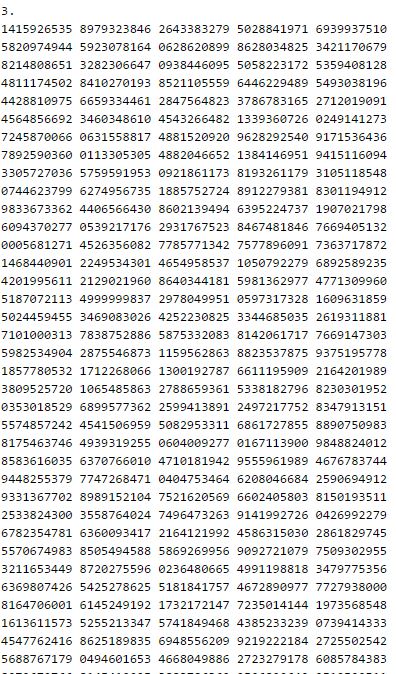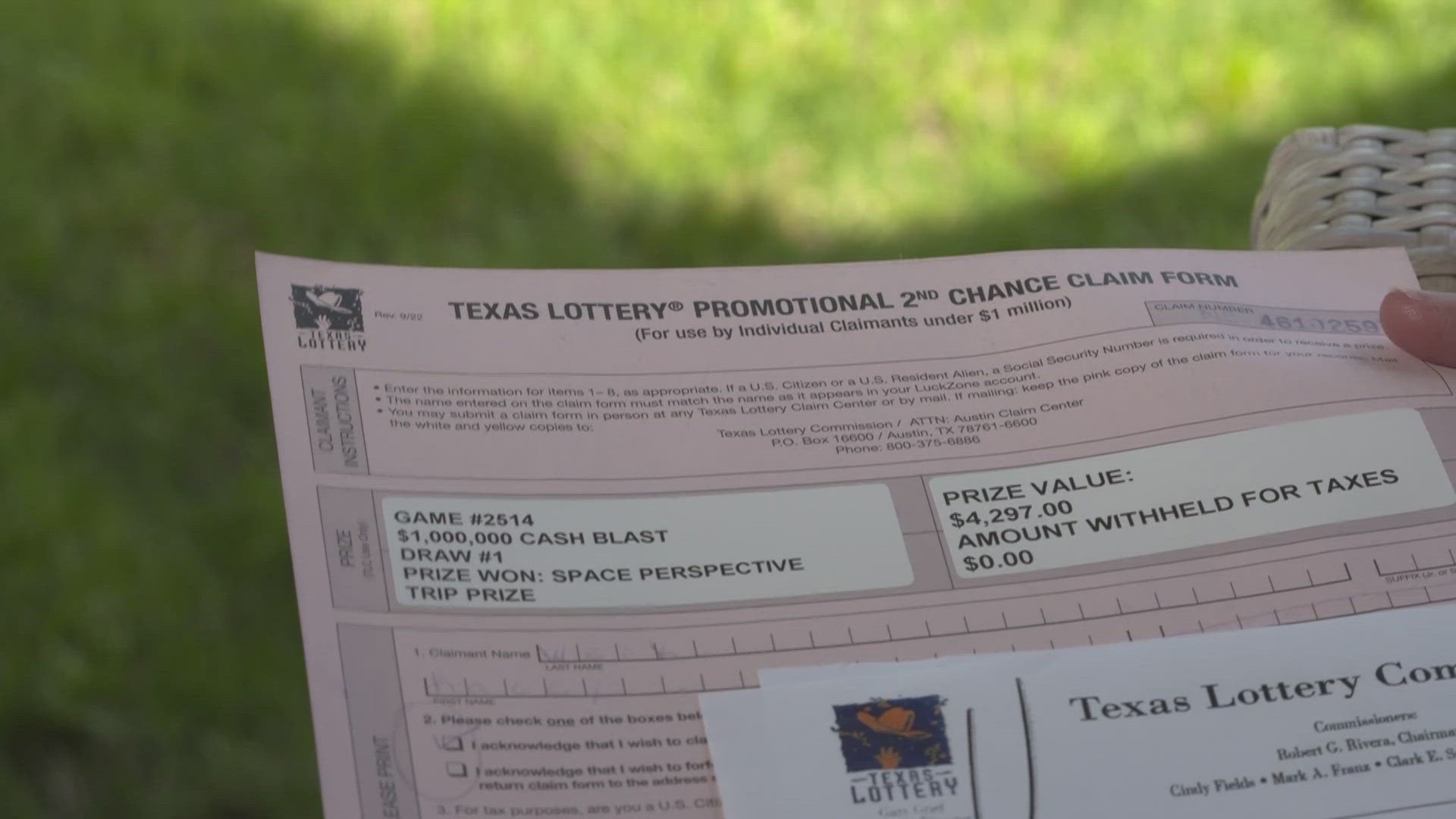![635615964444561297-pi-digits[ID=24712347] ID=24712347](http://www.gannett-cdn.com/-mm-/d19a1700f4c87650e2d780932d378dd2769b7c09/c=0-0-396-338/local/-/media/2015/03/10/KUSA/KUSA/635615964444561297-pi-digits.JPG)
So, in honor of Pi Day, we did the logical thing and had a journalism major meticulously research some fun facts about 3.14(159265369…).
1. What is pi? The number π is a mathematical constant representing the ratio of a circle's circumstance to its diameter. It's an irrational number, meaning that it can't be represented by a common fraction. Thus, its decimal representation never ends, and it never settles into a permanent repeating pattern.
2. What's with the symbol? The symbol pi has only been used in a mathematical sense since the mid-18th century. For those of you who weren't in Greek life in college, π is the Greek symbol for the letter "p." It was taken from the Greek word for "perimeter."
3. How many digits do we know in pi? Pi was not calculated to more than seven digits – using geometric techniques – and to more than five in Indian mathematics in the fifth century. The first exact formula for π, based on infinite series, wasn't available until theMadhava-Leibniz series was discovered in Indian mathematics in the 14th Century. Since then, computer scientists have discovered new approaches, and as of late 2013, had calculated pi up to more than a trillion digits.
4. Wait … Why do we bother finding that many digits? Because it's cool, and … math, that's why! Also, it's a good way to test super computers.
5. Those digits are random, right? Is there anything interesting in there? Yes! That is … if you define the fact that the first 144 digits of pi add up to 666 (which many scholars think is the "mark of the beast") as cool. And, 144 = (6+6) * (6+6)^d. That also could be considered cool There's also a website that lets you find your birthday within the first 200 million digits of pi:http://www.angio.net/pi/
6. Who discovered pi in the first place? No one's quite sure. The Great Pyramid of Giza (it was built back in 2500 BC) has a perimeter of 1760 cubits and a height of 280 cubits – a ratio that's approximately twice pi. This doesn't seem like an accident, but since we can't talk to ancient Egyptians, no one's quite sure. Archimedes, meanwhile, is largely considered to be the first to calculate an accurate estimation of pi (that happened in around 250 BC). An approximate ratio for pi also appears in the Bible, in 1 Kings 7:23. Swiss mathematician and physicist Leonhard Euler, meanwhile, is credited for popularizing the use of the π symbol (unlike "fetch," he totally made it happen).
7. Didn't Spock do something with pi? He did. In an episode of Star Trek: The Original Series, Spock commands an evil super computer to compute pi to the last digit (which, if you've read this story, you know is highly illogical …).
8. How many corners does a circle have? Funny you ask. You may say to yourself: a circle has no corners! But actually, it has an infinite number (because pi!).
9. Were there any celebrities born on Pi Day? Finally, a question that asks something important! Albert Einstein was born on Pi Day. As was Ansel Elgort (the hot guy in "A Fault in Our Stars") and Michael Caine (Alfred in "Batman").
BONUS FACTS:
- Chao Lu, of China, can recite pi from memory to 67,890 places. He holds the Guinness World Record for pi knowledge.
- You only really need 39 decimal places of pi for computing the circumference of a circle – your error will be no greater than the radius of a hydrogen atom. Even a journalism major knows that's pretty small.
- A mysterious crop circle in Britain shows a coded image representing the first 10 digits of pi. Trippy.
- Leonardo da Vinci briefly worked on approximating pi. He didn't accomplish anything else in his life (web commenters: yes, that was sarcasm).
So boom! Pi!
SOURCES:
http://en.wikipedia.org/wiki/Pi (yup... we used Wikipedia)
(KUSA-TV © 2015 Multimedia Holdings Corporation)


